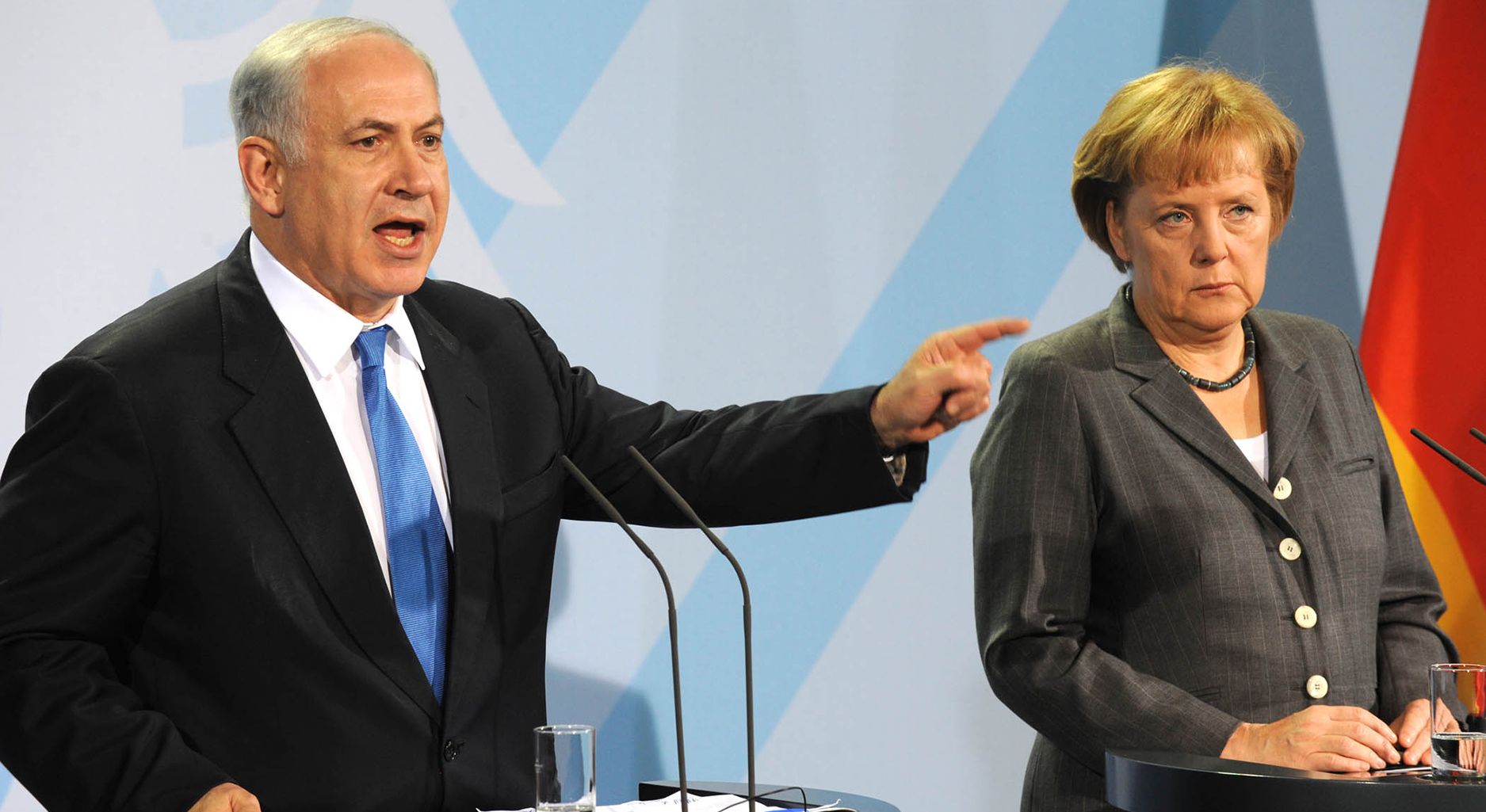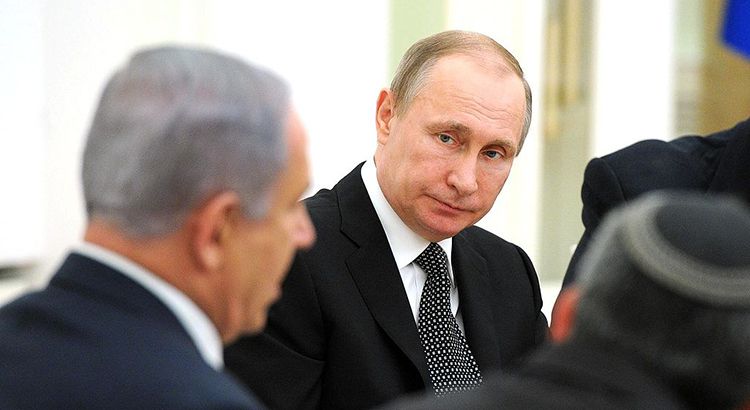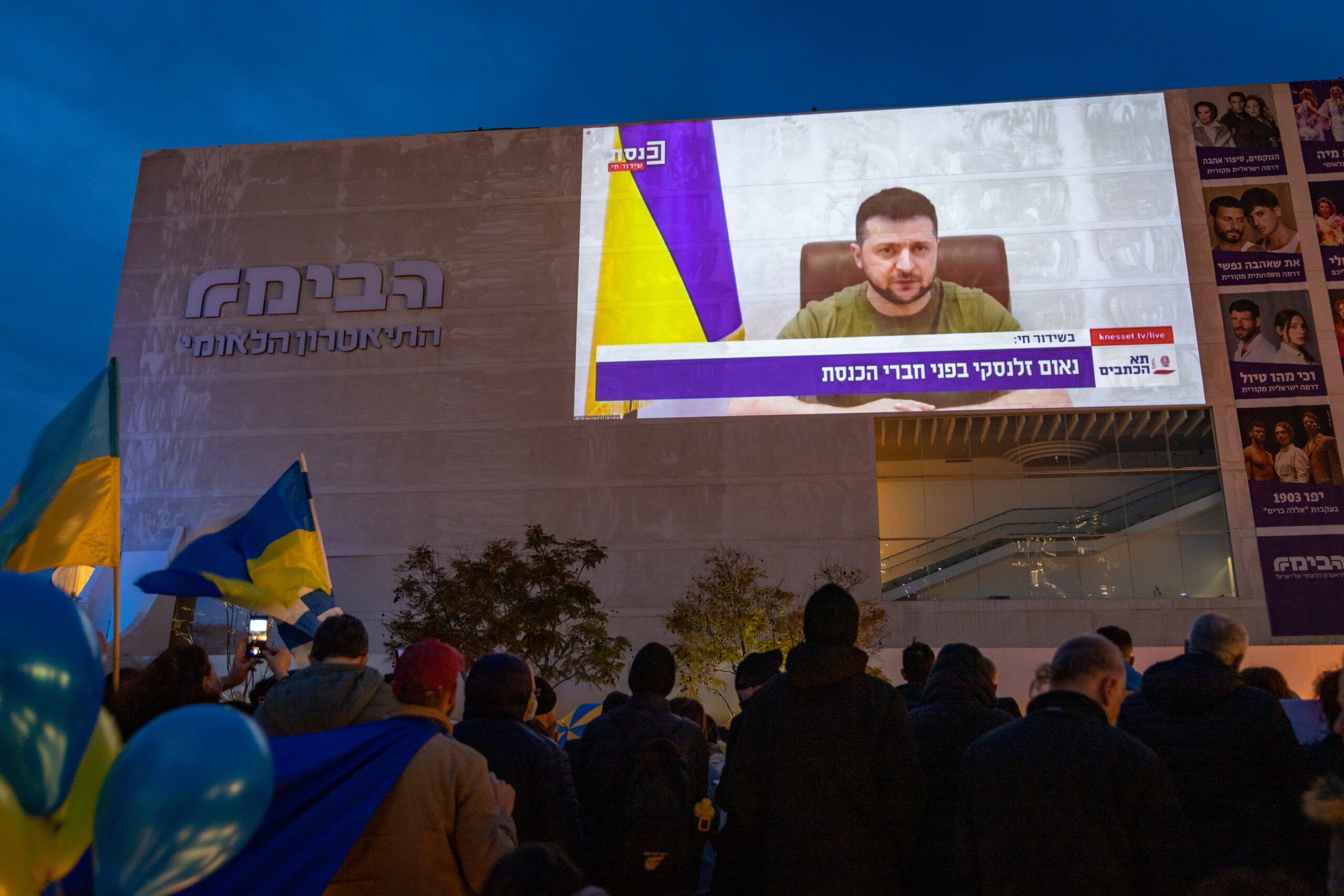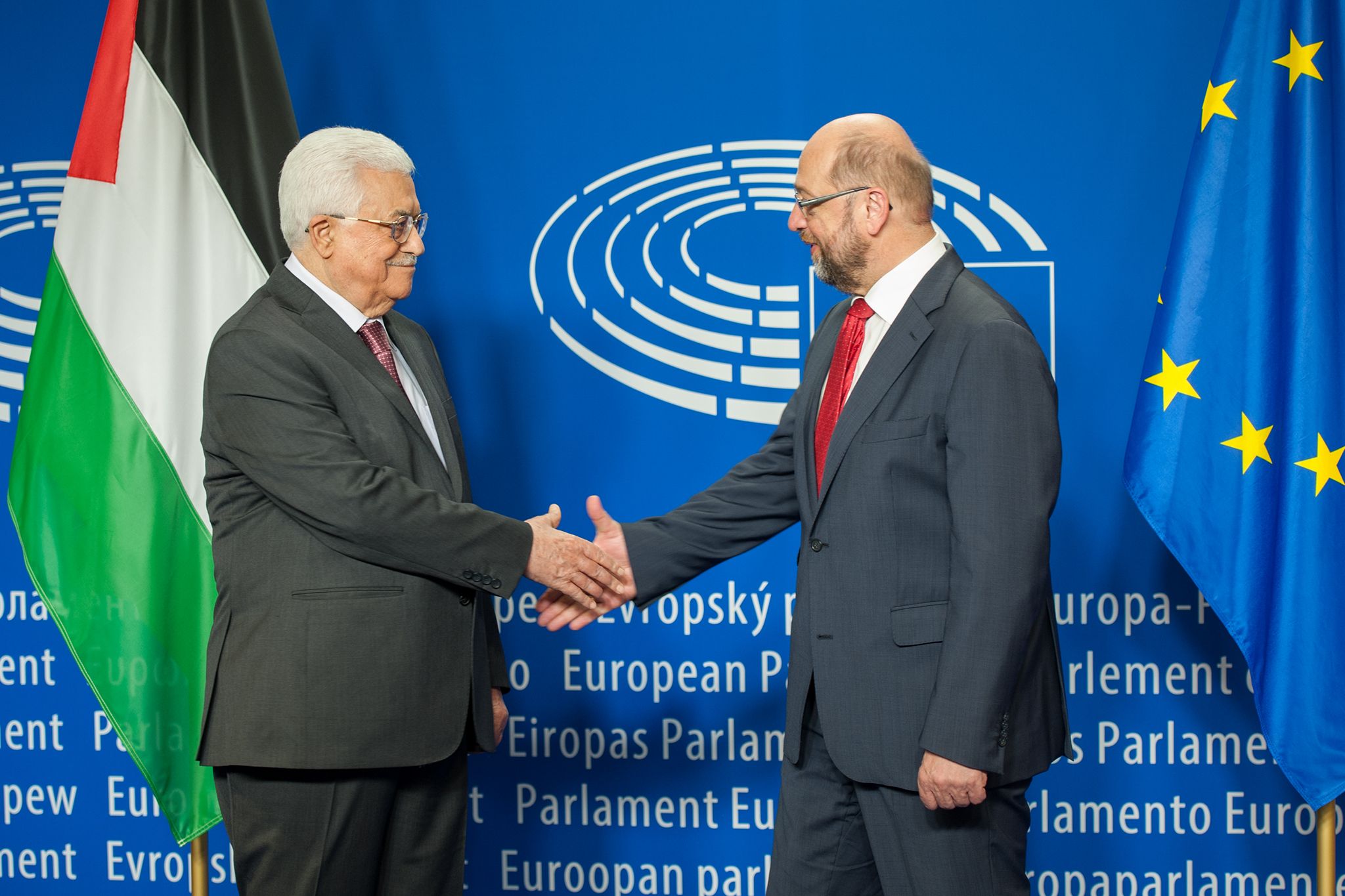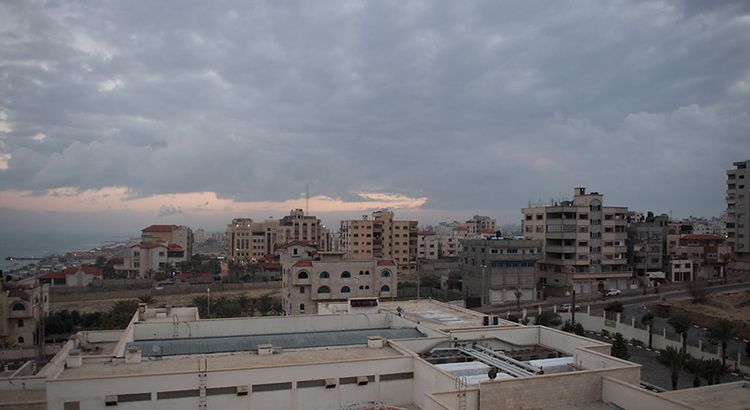Schlagwort: Israel
Eine besondere Schutzverantwortung für eine sichere Existenz des Staates Israel gilt seit den fünfziger Jahren als eine selbstverständliche Leitlinie deutscher Außenpolitik – alle Parteien und alle west- und dann gesamtdeutschen Regierungen übergreifend. Wie dieser Schutz am besten dauerhaft zu gewährleisten sei, war freilich in Israel selbst immer höchst umstritten. Inzwischen lässt sich nicht mehr übersehen, dass es sich Deutschland trotz vieler militärischer, wirtschaftlicher und politischer Hilfestellungen mit seinen wohlgemeinten pauschalen Zusicherungen und der damit einhergehenden Unverbindlichkeit seines Eintretens für eine Zweistaatenlösung zu leicht gemacht hat. Dieser Beitrag diskutiert die immanenten logischen Probleme und die praktischen Widersprüche einer zu vagen deutschen Außenpolitik gegenüber dem Nahost-Konflikt.
Wendepunkt in den Russland-Israel-Beziehungen
Moskau ist nach dem Terrorangriff der Hamas von Israel abgerückt und agiert offen pro-palästinensisch. Das hat auch mit dem Ukraine-Krieg zu tun.
Israel–Gaza: A German War Discourse
The way the escalation of violence in Israel, the Gaza Strip, and adjacent areas in the region is discussed in Germany is, in many respects, not surprising. It follows the structural dynamics of war discourses: the polarization into a friend–enemy schema; the negation of moral ambivalence; patterns of legitimation which suggest that the actions of one side are more than justified by the previous actions of the other side; the compulsion of the threat situation, discrediting reflection and distancing as inappropriate; the construction of unparalleled amorality; the circumvention of humane standards through dehumanization of the enemy; the simplification of an inherently complex situation.
How War in Israel Affects Russia’s War Against Ukraine
Since February 24th, 2022, the world has witnessed Russia’s war of aggression against Ukraine, which has become a serious challenge to many countries but particularly to those in the Euro-Atlantic community. A year and a half of brutal aggression has compelled Western governments to elaborate and implement a range of complex decisions at unprecedented scales and on a very short timelines. Further, Russia’s invasion has tested West’s ability to predict and assess security threats and to generate and sustain adequate political attention to the crisis. The shocking massacre of Israelis by Hamas on October 7th, 2023, has forced Western policy makers to react quickly to another crisis in another part of the world. Understandably, the Ukrainian government’s anxiety has increased with the uncertainty as to how it might be possible for the West would cope with two crisis situations simultaneously, and what—if anything— Kyiv should do about the situation in Israel.
Israel – Gaza: Ein deutscher Kriegsdiskurs
Wie über die Gewalteskalation in Israel, dem Gazastreifen und angrenzenden Gebieten der Region in Deutschland gesprochen wird, ist in vielerlei Hinsicht nicht überraschend, sondern folgt der strukturellen Dynamik von Kriegsdiskursen: die Polarisierung in ein Freund-Feind-Schema; das Negieren moralischer Ambivalenz; das Rechtfertigungsmuster, wonach die Akte der einen Seite durch vorherige Akte der anderen Seite mehr als gedeckt seien; der Zwang der Bedrohungslage, die Reflexion und Distanzierung als unangemessen diskreditiert; die Konstruktion beispielloser Amoralität; die Aushebelung humaner Standards durch Entmenschlichung des Feindes; die Vereindeutigung einer unauflösbar komplexen Lage.
Massaker unter Applaus: Antisemitische Reaktionen auf den Terror gegen Israel in Deutschland
Im Zuge des von der Terrororganisation Hamas als „Operation al Aqsa-Flut“ bezeichneten und von mehreren palästinensischen Terrorgruppen wie auch der Hisbollah im Libanon durchgeführten Angriffs auf Israel wurden an einem Tag mehr Jüdinnen*Juden aus antisemitischen Motiven ermordet, als an jedem anderen Tag seit der Shoah. In Reaktion auf die Angriffe und in der Folge auch auf die Reaktionen Israels, kam es vielerorts zu einer Vielzahl antisemitischer Vorfälle – so auch in Deutschland. Der Beitrag liefert einen Überblick über diese antisemitischen Phänomene in Deutschland und ihre Akteur*innen sowie über antisemitische Kontinuitäten. Die sprunghafte Zunahme antisemitischer Vorfälle erfordert konsequente gesellschaftliche Reaktionen.
The EU and the Israel-Palestine Test
Although the US has often prided itself of the status of sole interlocutor in the Middle East “conflict”, it has equally gained the reputation of an interested and biased mediator. In parallel, the European Community or EC – now European Union, EU – claimed to have a 'more balanced’ approach on the Middle East file, which in turn garnered Palestinians’ trust. But during the current escalation, the EU has been woefully disunited. This blog argues that a more unified European voice can only come about by “walking the talk” of an Israel-Palestine policy/peace agreement based on purported basic European values.
Der Krieg in Gaza: Es wurde versäumt, eine politische Lösung zu finden
Der Krieg in Gaza befindet sich in seiner dritten Woche. Nach dem präzedenzlosen Terrorangriff der Hamas auf Israel, bei dem 1400 Menschen auf grausamste Weise ermordet und mehr als 200 Geiseln genommen wurden, bombardiert die israelische Luftwaffe Ziele der Hamas im Gaza-Streifen. Das erklärte Ziel Israels ist, die Hamas vollständig zu zerstören. Eine Bodenoffensive scheint unmittelbar bevorzustehen. Aus Gaza heraus werden weitere Raketen auf Israel abgefeuert. Im Gaza-Streifen haben die Bombardements schon jetzt Tausende ziviler Opfer gefordert, Hunderttausende sind auf der Flucht. Die humanitäre Lage ist verheerend. Obwohl weder Ende noch Ergebnis des Krieges derzeit absehbar sind, erklingen bereits erste Rufe nach einer politischen Lösung. Doch die ist voraussetzungsvoll.
Mass Evacuations in Israel’s War Against Hamas: Taking Precautions in Attack or Forced Displacement?
The attacks of Hamas against Israel were deeply shocking. Israel has a right to defend itself against Hamas and at the same time it is obliged to protect the civilian population of Gaza as far as possible from harm and injury. But Israel is currently facing a true dilemma. While Israeli Defense Forces try to evacuate as many residents as possible, Hamas uses civilians as human shields, including hostages. The humanitarian situation in Gaza is dire and mass evacuations further exacerbate the problem.
Das Raketenabwehrsystem Arrow 3: Eine fragliche Beschaffung
Die Bundesregierung beschafft für rund vier Milliarden Euro das israelisch-amerikanische Raketenabwehrsystem Arrow 3. Im politischen Berlin stößt der Kauf auf breite Zustimmung, doch international sorgt er für Stirnrunzeln. Anders als das bereits vorhandene Patriot- und das kürzlich bestellte Iris-T-Luftverteidigungssystem der Bundeswehr eignet sich Arrow 3 nämlich gar nicht dazu, russische Raketen oder Marschflugkörper abzufangen. Auch andere Erklärungsansätze für die Beschaffung sind wenig überzeugend. Somit bleibt die Bundesregierung der deutschen Öffentlichkeit eine Antwort schuldig, gegen welche Bedrohungen sie das System in Zukunft einsetzen möchte.
